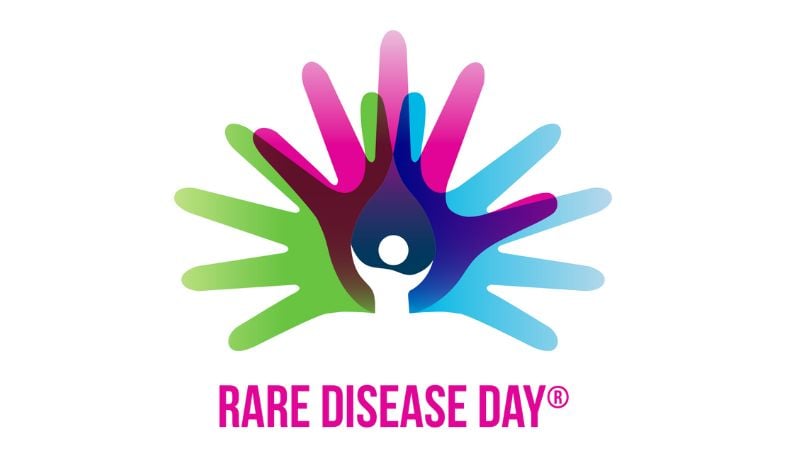
Families and caregivers are more than just companions; they are the patient’s advocates, champions, and confidants. They are also moms, dads, wives, husbands, and children—the people who love these patients the most. Their role is multifaceted, offering not only emotional reassurance and logistical assistance but also bearing the significant personal burden that comes with caregiving. This commitment ensures that the patient’s voice is heard loud and clear.
In honor of National Family Caregivers Month, our guide dives into how these unsung heroes can effectively support patients before, during, and after clinical trials. We’ll cover practical steps, key elements of effective advocacy, and essential resources to equip families and caregivers for this vital role.
With the right support system in place, patients can navigate their clinical trial journey with confidence and hope, knowing they are not alone. These caregivers, deeply rooted in love and dedication, play an indispensable role in enhancing patient care and outcomes.
The Role of Families and Caregivers in Clinical Trials
The unwavering support of families and caregivers can make a tremendous difference in the journey of patients navigating these studies. Let’s explore how their roles play out in real life.
Emotional and Physical Support
Imagine facing a clinical trial filled with uncertainty and potential side effects. It’s daunting, to say the least. Yet, the support from families and caregivers often begins well before a patient enters a trial. They are the ones tirelessly caring for their loved ones, seeking hope and help in challenging times. Their crucial role includes evaluating whether a clinical trial is suitable for the patient and, if so, determining which trial offers the best prospects.
Once a decision is made, caregivers provide a lifeline through their comforting presence and reassuring words, helping patients remain positive and resilient throughout the process. Their encouragement is invaluable in navigating these challenging times.
Practical support is equally crucial. Caregivers often manage transportation to medical appointments, handle medication schedules, and assist with daily tasks. For patients, knowing they have someone to take on these responsibilities allows them to focus on what truly matters—their treatment. The burden of caregiving is significant, beginning even before enrollment, and underscores the profound impact they have on patient care and well-being.
Communication and Information Sharing
Clear communication is the backbone of effective clinical trial participation. Caregivers act as the bridge between patients and medical teams. They convey patient concerns, track symptoms, and ensure healthcare providers have all the necessary information. This role is vital for ensuring that patients receive the best possible care.
Clinical trials often come with a flood of complex information. This experience alone can be extremely taxing, especially when caregivers have many other responsibilities. Ryan Sheedy, a rare disease parent and founder of the caregiving digital assistant mejo, shared his experience on the Child Life on Call podcast. He recounted his time in the NICU with his son Reynolds: “[H]aving all of these moving parts, I had to repeat the same information over and over again to countless providers, to insurance companies, to anybody who was [over] Reynolds’ care. And it got draining, and I had to relive all of that.”
Caregivers often juggle a multitude of medical details and terminology, which can be exhausting both mentally and physically. Despite these hurdles, they remain dedicated advocates for patients. They actively ask questions and simplify complex medical terms, enabling patients to understand their treatment options and make informed decisions. Additionally, caregivers frequently act as interpreters for family members who may not speak or only speak a little of the language used at the clinical trial site, bridging language barriers and ensuring clear communication.
Beyond managing information, caregivers provide crucial emotional and practical support to patients navigating clinical trials. By breaking down complex information into more understandable terms and offering unwavering support, caregivers play a critical role in enhancing the patient's experience and contributing to the success of the trial. Their dedication helps ensure medical processes become more human and more accessible.
Patient Advocacy in Clinical Trials
Patient advocacy is a cornerstone of the clinical trial process. It ensures that patients' voices are heard and their rights prioritized. Families and caregivers often embrace this role, championing the patient's cause throughout their trial journey.
What is Patient Advocacy?
Patient advocacy involves promoting the interests of patients. It ensures they receive essential information, support, and care. Activities include educating patients about their rights and securing access to necessary resources and treatments.
Historically, patient advocacy arose alongside the need for patients to take a more active role in healthcare decisions. Over time, it has evolved significantly, driven by movements for patient rights and increased transparency in medical practices.
Today, patient advocacy is integral to healthcare. It involves professionals and organizations dedicated to supporting patients through complex processes like clinical trials. Caregivers and Patient Advocacy Groups (PAGs) each play crucial roles.
Caregivers provide a deeply personal touch. They offer tailored support and prioritize the individual needs of their loved ones. Often, caregivers rely on PAGs for guidance, information, and community support. Many caregivers are unaware of the existence of these groups.
PAGs operate on a larger scale. They advocate for patient rights at a systemic level, influence policy, and advance research. PAGs supply caregivers with the knowledge and resources needed to navigate clinical trials effectively. Together, caregivers and PAGs form a comprehensive support network.
Why Advocacy Matters
Advocacy is vital in safeguarding patients' rights during clinical trials. It ensures informed consent, allowing patients to fully understand their participation before joining a trial. Patients also retain the right to withdraw at any stage.
Advocates, particularly caregivers, support patients by addressing concerns and facilitating communication with medical teams. Their involvement ensures that care is personalized and comprehensive, improving adherence to trial protocols and the accuracy of side effect reporting.
This collaborative advocacy enhances the quality of care. It also improves the reliability of trial outcomes. By working together, caregivers and PAGs create an environment where patients feel supported and empowered. This collaboration enriches both the trial experience and its outcomes.
3 Key Elements of Effective Advocacy
1. Education: Staying Informed About the Disease and Trial Specifics
Knowledge is power. Effective advocates stay informed about the disease in question and the clinical trial's specifics. They seek out reliable sources of information and seek to understand the latest research and developments. This enables them to provide accurate information to the patient and anticipate any potential challenges.
2. Communication: Clear, Honest Dialogues with Healthcare Providers
Open and honest communication with healthcare providers is crucial. Advocates facilitate this by asking questions, seeking clarifications, and ensuring that the patient’s concerns are addressed. They maintain a clear line of communication between the patient and the medical team, which is essential for effective participation in the trial.
3. Empowerment: Encouraging Patients to Voice Their Concerns and Preferences
Empowerment means encouraging patients to take an active role in their care. Advocates help patients feel confident in voicing their concerns and preferences, ensuring that their needs and values guide their treatment. This not only enhances the patient’s experience but also leads to better adherence to the trial protocol and more meaningful outcomes.
Patient advocacy plays a critical role in clinical trials, ensuring that patients' rights and needs are prioritized. By staying informed, communicating effectively, and empowering patients, advocates help improve the quality of care and contribute to the success of clinical trials.
7 Practical Steps for Families and Caregivers to Advocate
Effective advocacy requires proactive steps before, during, and after a clinical trial. Here’s how families and caregivers can support patients throughout the entire process.
Before Joining a Clinical Trial
1. Consulting with the Primary Physician
Begin by discussing potential clinical trials with the patient's primary physician. Patients and caregivers trust their doctors, who possess a deep understanding of the patient's condition, prognosis, and therapeutic options. This conversation is crucial in identifying suitable trials and understanding the implications of participation.
2. Researching Clinical Trial Options
Start by gathering comprehensive information about available clinical trials. Use reputable sources such as clinical trial registries, medical institutions, and patient advocacy groups. Look for trials that align with the patient's medical condition, treatment history, and personal preferences.
3. Discussing Potential Benefits and Risks with Medical Professionals
Schedule consultations with healthcare providers to discuss the details of potential trials. Ask about the possible benefits and risks, the trial's purpose, the procedures involved, and the expected outcomes. You’ll also want to know about the trial's duration, whether it is placebo-controlled, and any measures the sponsor has taken to ease financial and logistical burdens. This helps in making an informed decision about whether to participate in a particular trial.
During the Clinical Trial
4. Keeping Detailed Records of Patient Experiences and Side Effects
Maintain a detailed journal of the patient's experiences during the trial. Record any side effects, changes in symptoms, and overall health status. If the trial provides a mechanism for documenting these details, caregivers can assist patients in completing diaries or other reporting tools. This support ensures compliance with trial protocols and provides valuable information for both the medical team and the patient, aiding in monitoring progress and addressing any issues promptly.
5. Regularly Communicating with the Trial Team
Establish a routine for regular communication with the clinical trial team. Update them on the patient's condition, report any side effects, and seek guidance when needed. Consistent communication ensures that the trial runs smoothly and that any concerns are addressed quickly.
After the Clinical Trial
6. Providing Feedback on the Trial Experience
After the trial, it's vital to share feedback with the coordinators. Insights on what was effective and what needs improvement can significantly refine future trials. A 2022 study by Dr. Noah Goodson and team highlights that involving patients in trial design enhances recruitment, retention, and satisfaction, ensuring trials better meet patient needs and improve care. Your feedback helps shape future trial protocols for more patient-centered research.
7. Engaging in Support Groups and Networks for Shared Experiences
Joining support groups and networks offers patients and caregivers a platform to share their clinical trial experiences. These communities provide emotional backing, practical tips, and valuable insights that help manage life after a trial, creating a sense of unity and shared purpose.
Recognizing the crucial role caregivers play is vital, as they support and advocate for their loved ones through clinical trials. To ease the significant challenges caregivers face, the industry should provide comprehensive support. This includes financial aid, logistical resources, and emotional support, along with educational programs tailored to their needs.
Culturally and linguistically relevant materials are also important, fostering inclusivity and better understanding. By addressing these needs, caregivers can maintain their resilience and effectiveness, ensuring patients receive optimal care and that their voices are central in the clinical trial process.
These practical steps empower families and caregivers to advocate more effectively, ensuring their loved ones receive the best possible care and that their voices are heard throughout their journey.
Resources for Families and Caregivers
Families and caregivers need a robust support system to effectively advocate for patients in clinical trials. Here are some valuable resources to guide and assist them.
Support Organizations and Networks
National and Local Organizations
- Rare Patient Voice: Helps patients and caregivers voice their opinions through surveys and interviews.
- National Institutes of Health (NIH) Clinical Center: Provides resources and support for those involved in clinical trials.
- Patient Advocate Foundation: Supports patients by eliminating obstacles to accessing healthcare.
- Local health departments often provide resources and support specific to community needs.
Online Forums and Communities
- PatientsLikeMe: An online community where patients and caregivers share experiences and support each other.
- Smart Patients Clinical Trial Forum: A platform for discussing clinical trials, finding support, and sharing advice.
- Reddit: Subreddits like r/cancer or r/clinicaltrials can be useful for connecting with others in similar situations.
Educational Materials
1. Books/eBooks
- Clinical Trials: What Patients and Healthy Volunteers Need to Know by Lorna Speid: This book provides practical advice and insights into the clinical trial process, helping readers understand their role and the benefits of participation.
- The Gift of Participation: A Guide to Making Informed Decisions for Volunteering in Clinical Trials by Kenneth Getz: Written by CISCRP’s founder, this book focuses on empowering patients and caregivers with the information needed to make informed decisions, encouraging engagement through understanding the personal and societal benefits of clinical trials.
2. Podcasts
- Empowered Patient Podcast: This podcast provides a window into the latest innovations in healthcare and the evolving relationship between patients and doctors. It helps listeners understand the broader context of clinical trials and their potential benefits. (Check out this episode featuring Scout’s KimberLee Heidmann!)
- The Clinical Trials Guru: With its focus on the clinical trial process and problem-solving, Dan Sfera’s podcast would be invaluable for understanding what to expect and how to navigate the complexities of trial participation.
- Rethinking Clinical Trials: This podcast features expert discussions on pragmatic clinical trials, offering insights into ethical issues like informed consent and practical aspects such as trial design. It's an essential resource for caregivers and patients considering trial participation.
- c4c Podcasts: This podcast is particularly relevant for parents, caregivers and loved ones of pediatric patients. It focuses on pediatric clinical trials and addresses the unique challenges and opportunities in this area.
3. Websites
- ClinicalTrials.gov: A comprehensive database of privately and publicly funded clinical studies conducted around the world.
- NIH Clinical Research Trials and You: Provides information about participating in clinical research.
- Cancer.org: The American Cancer Society detailed guides on participating in cancer clinical trials.
Legal and Financial Assistance
Understanding Patient Rights
- Informed Consent Document: Ensure you understand the terms and conditions before enrolling in a trial.
- Patient Bill of Rights: Familiarize yourself with the rights that protect patients during clinical trials.
Navigating Insurance and Financial Aid Options
- Insurance Coverage: Check with your insurance provider to understand what costs are covered under clinical trial participation.
- Financial Assistance Programs: Many organizations offer financial aid to help cover expenses related to clinical trial participation.
- CancerCare Co-Payment Assistance Foundation: Provides financial assistance for co-payments.
- HealthWell Foundation: Offers financial support for treatment-related costs.
By leveraging these resources, families and caregivers can better navigate the complexities of clinical trials, ensuring that their loved ones receive the support and care they need.
Scout offers comprehensive, personalized patient services to help participants and caregivers navigate the study landscape. Click here to explore Scout Clinical’s solutions for travel, payments, and logistics.
.png?width=1387&height=800&name=Scout_Logo_RGB%20(1).png)


